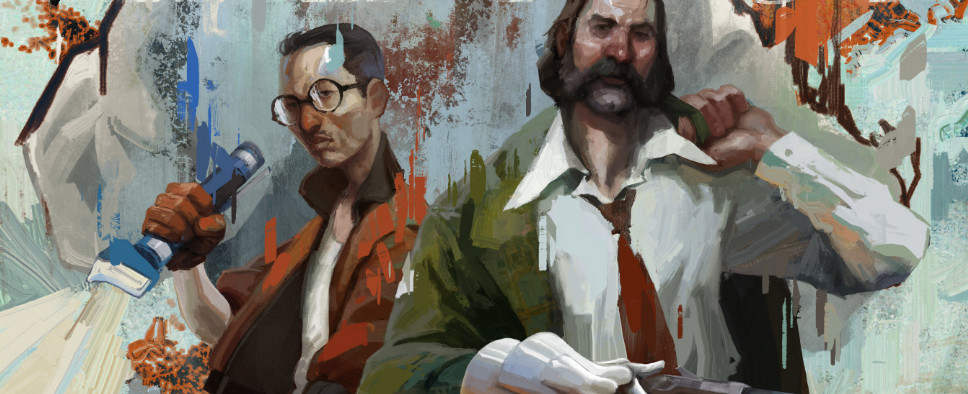Disco Elysium - Setting's Origins
-
Category: News ArchiveHits: 3704

What with ZA/UM Studio and the actual people behind Disco Elysium currently butting heads in the court of law, you might be interested in learning where and how it all began. If that's the case, this recent Medium post from Martin Luiga takes us back to the distant past of the early 2000s when this curious world still had dwarves, elves, and over 350 spells.
Check it out:
8 YEARS AGO TODAY, THE DISCO GOT ITS START
Not the Elysium, which is a far older matter and dates back to the year 2000 at least — I think, I wasn’t there for the start — it began as a try to make a more Epic version of a bootleg Finnish D&D system while Robert was still a teen, and at first, it was called “Evermier”. Dwarves and elves, it did have. I believe there was some kind of a PnP campaign in that setting as well, but I didn’t make it to that. Most of the engagement was about system-building. The wizard book was supposed to have 350 spells altogether, each with at least half a page story about the spell, in prose. I think about a healthy third of the mage book got done in the end. The name change to Elysium happened before we got rid of the dwarves and the elves, and was in fact suggested to Robert by some fellow on the dragon.ee D&D and LARP forum, but it took him about half a year to sink in and be taken seriously.
In the ‘humanized’ Elysium, three campaigns took place — the Soul Milton’s world autumn campaign, the Riget campaign and the Torson & McLaine campaign. None of these were played to the end, and I would say from memory that they took place during the years 2003–2006, maybe 2004–2006 — the first two were played at Robert’s old place at the concrete block project at Mustamäe, the third one at my place, which was my dad’s place, later we all went to live there when dad died, which I think was also in 2006. This place was in something of a mixed-income suburb. My mom has written a whole book on roughly these times, while placing it in fantasy Poland. One can at the moment listen to 13 chapters of it here: FAKE POLAND — YouTube
By that time, Robert had developed a rather foolproof way of game mastering, which largely consisted of 1) knowing what the story is and 2) knowing the dice, the charsheets and what should or should not be easy to do. I’d say he was very good at this stuff — maybe even too good, as me and Argo, the main players, were good as actors, meaning, at playing the roles, but much worse at figuring out what it is that we are supposed to do at a given moment. But we mostly played roles of fools and children and people who had lost their memory, so it was about fine (the Riget campaigns were literally about a whole bunch of children that went treasure-hunting but were trapped underground by demons that were themselves *also* trapped underground, but wanted to get out, I think they needed the children as vessels. A rather Lord of the Flies type endeavor. Now some of you might want to know whether demons still exist in the Elysium world in some way or form, I’m going to leave it hanging).
When my dad died, I got an inheritance about 1 000 000 kroons in size, which translates to approximately 65 000 euros, and various critics have said that I did nothing useful with it, with which I would disagree. I would say I invested it in true and lasting luxuries, which are the fruits of human thought. Me, Argo and Robert could live without financial worry at my dad’s place for about 2 years — I also supported various other close individuals — and during that time, Robert wrote the first half of “Sacred and Terrible Air” and published Ultramelanhool’s second album, “Materjal”. At the brink of the inevitable commune collapse, the ZA/UM blog and organization were founded — that was in late 2008.
It would seem that blogging was hard work, as Sacred and Terrible Air was only published in 2013, and could be described as a ‘critical hit but a commercial failure’. For Robert, that wanted an actual audience ‘like they do abroad’, it was of course a blow — although for me it remains a mystery whether anyone has ‘actual audience’ here — actual readers, sure, but an audience? Anyhow, that led to experimentation with other forms, which eventually did find an audience.
[...]
The rest is, as they say, History, but one that will be told on another day.

